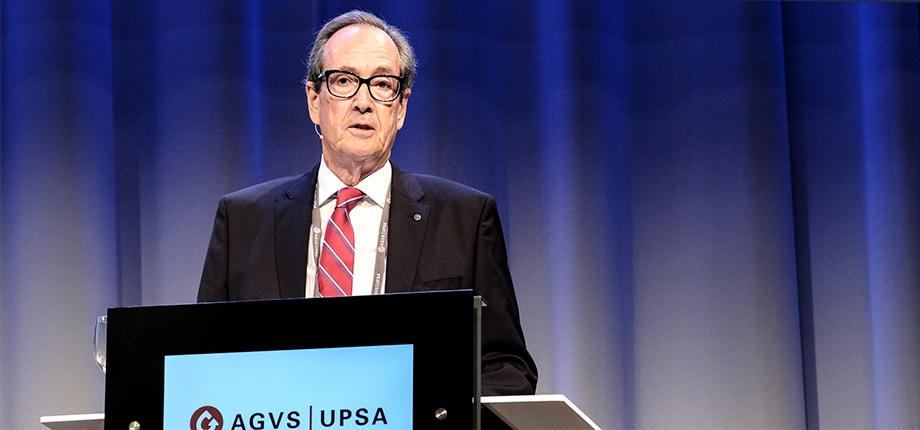Garagist Day: The future under control 🎥
COMPETENCE AND TRUST Swiss garage owners see themselves as part of the solution in the current climate debate. This was one of the key messages at the "Day of the Swiss Garagists" with over 900 participants. The "Day of Swiss Garagists" went off with a record number of participants. The trust placed in them by motorists remains high. This is shown by a [...]
The "Day of Swiss Garagists" went off with a record number of participants.
The trust placed in them by motorists remains high. This is shown by representative market research presented at the symposium.
Reduction of CO2 emissions
Today, motorized private transport is more important than ever, both economically and socially: With 4.7 million passenger cars currently registered, there are more vehicles in Switzerland than ever before.
The need is great - and so are the challenges in the struggle to reduce CO2 emissions.
Urs Wernli, Central President of the Auto Gewerbe Verband Schweiz (AGVS): "Our 4,000 members are aware that greening has become more important and will become even more so. The automotive industry has recognized the signs of the times."
The close cooperation with the Federal Office of Energy in various projects, including the AutoEnergieCheck, is also considered proof of this.
Urs Wernli: "Energy-efficient and climate-friendly vehicles are very welcome to the Swiss automotive industry. They benefit the environment and they reduce the number of arguments against the car."

Potential for Swiss garage owners
The fact that almost two-thirds of the distance traveled by the Swiss every day is by car and that 61 percent of the total transport performance in freight traffic is by road shows the potential for Swiss garage owners to contribute to more ecological transport.
Urs Wernli: "For motorists and transport companies, our members are the first point of contact when it comes to purchasing and maintenance."
The importance of maintaining the existing vehicle fleet is demonstrated by the fact that a car is in service for around 15 to 18 years. This means that even in 2040, more than half of the vehicle fleet will still have an internal combustion engine.
Trust and responsibility
This trust of car owners and the influence associated with it is documented by the results of a representative market survey conducted by the AGVS last October by the renowned Link Institute. Across all generations, the garage owner is the first choice when it comes to cars - for new and used cars as well as for maintenance and the choice of spare parts and tires.
An overwhelming majority of Swiss car owners rely entirely on the expert advice of their garage owner when it comes to repair work. In general, Swiss car owners give their garage owners and their employees a very good report card: Across all generations, average satisfaction is 83 percent.
Urs Wernli: "That's a very high value, but it also comes with a corresponding responsibility."
Less polemic and polarization
At the same time, Urs Wernli appealed for less polemics and polarization in the environmental debate. The Central President made it clear that the automotive industry was not against environmental protection:
Urs Wernli: "The great confidence of car owners is an obligation for garage owners to sell efficient cars that are as environmentally friendly as possible. However, I see the manufacturers as having a responsibility here. We garage owners can only sell what is produced.
Role of the car over time
In his presentation, political scientist Claude Longchamp showed how the role of the car is beginning to change - from the "old" car as an increasing problem to the "new" car as part of the solution.
Pascal Previdoli, Deputy Director of the Swiss Federal Office of Energy, addressed the garage owners as partners, referring to the joint projects. He pointed out what the federal government hopes for from the garagists in the future: namely, to assume their role as experts in energy efficiency and sustainably oriented mobility service providers even more strongly.
Development in the area of mobility
This development was then also the subject of discussion between Jürg Röthlisberger, Director of the Federal Roads Office, Thierry Burkart, FDP member of the Council of States for the canton of Aargau, and Christian Bach, Head of the Vehicle Propulsion Systems Department and propulsion researcher at Empa.
Michael Jost, Head of Strategy at Volkswagen, showed on the one hand how the world's largest manufacturer of passenger cars sees the development in the field of mobility, and on the other hand the consequences of the transformation from manufacturer to mobility provider - also and especially for the automotive trade.









